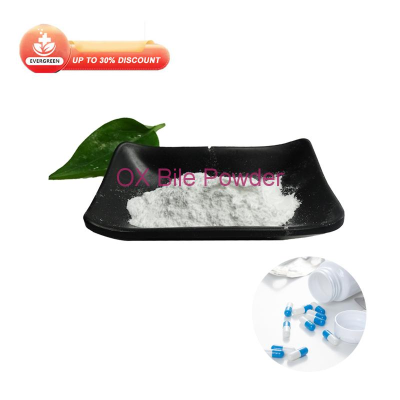-
Categories
-
Pharmaceutical Intermediates
-
Active Pharmaceutical Ingredients
-
Food Additives
- Industrial Coatings
- Agrochemicals
- Dyes and Pigments
- Surfactant
- Flavors and Fragrances
- Chemical Reagents
- Catalyst and Auxiliary
- Natural Products
- Inorganic Chemistry
-
Organic Chemistry
-
Biochemical Engineering
- Analytical Chemistry
- Cosmetic Ingredient
-
Pharmaceutical Intermediates
Promotion
ECHEMI Mall
Wholesale
Weekly Price
Exhibition
News
-
Trade Service
Recently, the peanut cultivation and physiological ecology innovation team of Shandong Academy of Agricultural Sciences published an online report entitled "Microplastics reduce nitrogen uptake in peanut plants by damaging root cells and impairing soil" in the Journal of Hazardous Materials (IF=14.
22), a TOP journal of the Chinese Academy of Sciences Nitrogen Cycling"
.
22), a TOP journal of the Chinese Academy of Sciences Nitrogen Cycling"
.
Plastic pollution is a serious threat to the security
of global ecosystems.
Microplastics are microparticles
with a diameter of less than 5 mm produced during the degradation of plastics.
It is estimated that the abundance of microplastics in the soil environment is about 0.
34 to 16,000 particles/kg soil
.
Peanut is an important oil crop, and mulching is one of the
important cultivation techniques for high peanut yield.
However, little is known about the effects of microplastics produced under long-term mulching conditions on peanut growth and development and nutrient cycling in
agroecosystems.
of global ecosystems.
Microplastics are microparticles
with a diameter of less than 5 mm produced during the degradation of plastics.
It is estimated that the abundance of microplastics in the soil environment is about 0.
34 to 16,000 particles/kg soil
.
Peanut is an important oil crop, and mulching is one of the
important cultivation techniques for high peanut yield.
However, little is known about the effects of microplastics produced under long-term mulching conditions on peanut growth and development and nutrient cycling in
agroecosystems.
The paper reports the effects
of two types of microplastic pollutants (polypropylene and rubber) on peanut growth and quality, as well as nitrogen cycling in soil-peanut ecosystems.
It was found that high concentrations of polypropylene and rubber could destroy the integrity of the plasma membrane of plant roots and reduce the number of xylem ducts.
On the other hand, it affected the rhizosphere microbial community structure and the expression of key genes of nitrogen cycling, changed the soil nitrogen cycle, and reduced the available nitrogen in rhizosphere soil, thereby inhibiting the uptake of nitrogen fertilizer by peanuts and the protein content
in seeds.
This study elucidates the mechanism of microplastics affecting the nitrogen uptake and utilization of peanuts for the first time, indicating that reasonable control of microplastic pollution is of great significance
for agricultural production and ecosystem nutrient cycling.
of two types of microplastic pollutants (polypropylene and rubber) on peanut growth and quality, as well as nitrogen cycling in soil-peanut ecosystems.
It was found that high concentrations of polypropylene and rubber could destroy the integrity of the plasma membrane of plant roots and reduce the number of xylem ducts.
On the other hand, it affected the rhizosphere microbial community structure and the expression of key genes of nitrogen cycling, changed the soil nitrogen cycle, and reduced the available nitrogen in rhizosphere soil, thereby inhibiting the uptake of nitrogen fertilizer by peanuts and the protein content
in seeds.
This study elucidates the mechanism of microplastics affecting the nitrogen uptake and utilization of peanuts for the first time, indicating that reasonable control of microplastic pollution is of great significance
for agricultural production and ecosystem nutrient cycling.
Liu Yiyang, assistant researcher of the Institute of Germplasm Resources, Xu Fangji, assistant researcher and graduate student Ding Liping are the co-first authors of the paper, and researchers Wan Shubo and Li Guowei are the co-corresponding authors
of the paper.
The research was supported
by projects such as the Academy Innovation Project (CXGC2022A34).
Article link: https://doi.
org/10.
1016/j.
jhazmat.
2022.
130384
.
Up to now, the peanut cultivation and physiological ecology innovation team has published 6 papers in Region 1 of the Chinese Academy of Sciences in 2022, of which 4 papers have an impact factor greater than 10.
0, and our institute is the first
.
of the paper.
The research was supported
by projects such as the Academy Innovation Project (CXGC2022A34).
Article link: https://doi.
org/10.
1016/j.
jhazmat.
2022.
130384
.
Up to now, the peanut cultivation and physiological ecology innovation team has published 6 papers in Region 1 of the Chinese Academy of Sciences in 2022, of which 4 papers have an impact factor greater than 10.
0, and our institute is the first
.







